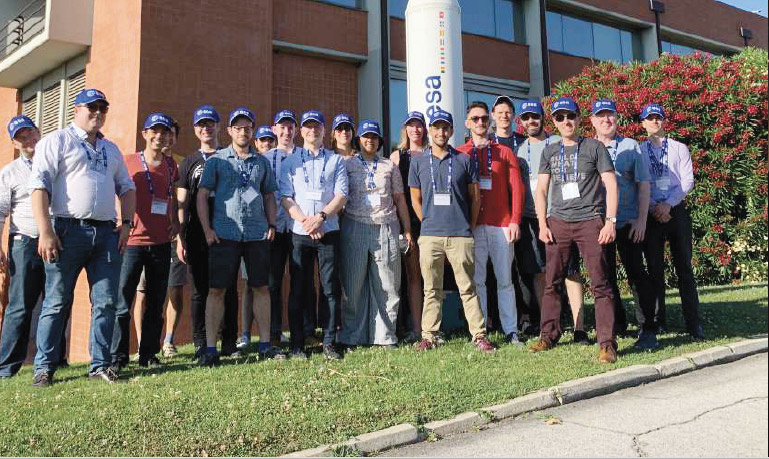AI4EO Challenge with Frontier Development Lab (FDL)
The Frontier Development Lab (FDL) is an AI accelerator scheme based on a 8-week intensive research sprint addressing global challenges of our planet with AI and data. The initiative originated with NASA a few years ago and has now been extended with ESA, to Europe. FDL is an interdisciplinary PhD-postdoctoral level research programme that applies AI technologies to science. The scope is to push the frontiers of research and develop new tools to help solve some of the biggest challenges of our planet. These range from the effects of climate change to predicting space weather, from improving disaster response, to identifying meteorites which could hold the key to the history of our universe.

Credits: FDL Europe
In particular, FDL Europe is demonstrating the potential of ML for both scientific progress and discovery as well as new paradigms of engineering, from putting AI onboard spacecraft, to helping identify informal settlements. The central value is that subject experts – with deep knowledge of the problem domain – can develop AI enhanced work-flows and solutions with peers from the data sciences. The challenges have been coached by EO and AI specialists.
In 2018, FDL Europe in partnership with the European Space Agency, hosted a research sprint at the University of Oxford with a kick-off at Φ-lab premises. With the support of NVIDIA and the Satellite Applications catapults, two teams of researchers tackled challenges under the mission area “Mission Control for Planet Earth”. The research sprint was a great success and the outputs showed the great potential of Mission Control for Planet Earth. One team of researchers focused on identification and of mapping informal settlements to enable governments and aid agencies to better support these communities and a second team focused on the development of an AI technique, Multi3Net, to drastically reduce the time and effort required to create effective disaster impact maps to aid disaster response.
In 2019 the challenges included on-board ML for Disaster Response (Floods) and Atmospheric Phenomena for climate variability. The Floods team produced numerous innovations in onboard ML including a whole earth-scale pre-processed and labelled training set for flood segmentation called WorldFloods. The Climate team produced a valuable data product for the climate change community. CUMULO, a legacy of this project consists of a benchmark cloud data set for training and evaluating cloud classifiers at high spatial and temporal resolution.
